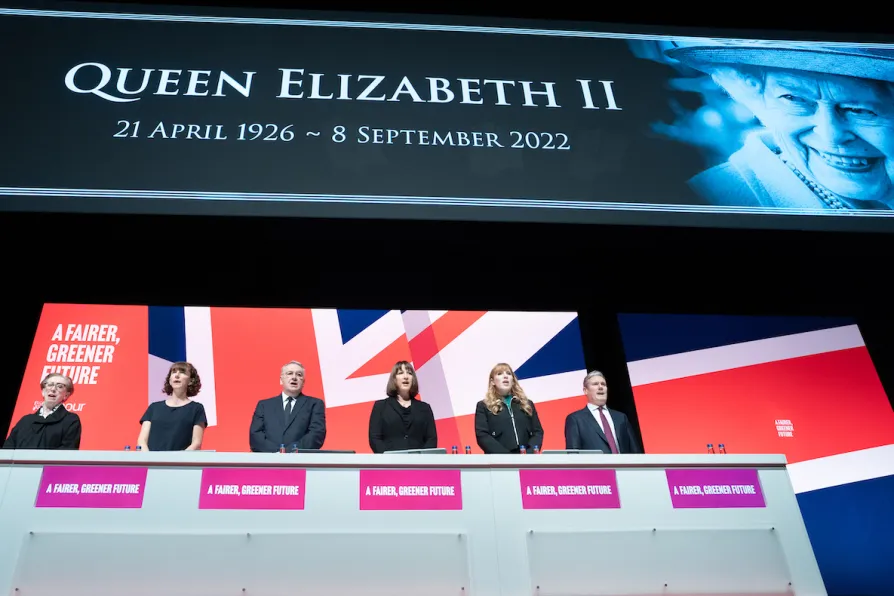Labour prospects in May elections may be irrevocably damaged by Birmingham Council’s costly refusal to settle the year-long dispute, warns STEVE WRIGHT

 Labour party leader Sir Keir Starmer (right) leads tributes to Queen Elizabeth II as the national anthem is sung during the Labour Party Conference in Liverpool. Picture date: Sunday September 25, 2022.
Labour party leader Sir Keir Starmer (right) leads tributes to Queen Elizabeth II as the national anthem is sung during the Labour Party Conference in Liverpool. Picture date: Sunday September 25, 2022.
SOME might argue that among a number of things Keir Starmer and Liz Truss may have in common is a youthful public disdain for the monarchy, now replaced by a forelock-tugging approach to it.
The comparison doesn’t quite work because Starmer has tugged his forelock harder.
He tweeted nothing but royal inanities on his Twitter account from the day of the Queen’s death until her funeral, while millions continued to struggle with the cost-of-living crisis.

STEPHEN ARNELL wonders at the family resemblance between former prince Andrew and his great-uncle ‘Dickie’

The government cracking down on something it can’t comprehend and doesn’t want to engage with is a repeating pattern of history, says KEITH FLETT

KEITH FLETT traces how the ‘world’s most successful political party’ has imploded since Thatcher’s fall, from nine leaders in 30 years to losing all 16 English councils, with Reform UK symbolically capturing Peel’s birthplace, Tamworth — but the beast is not dead yet











